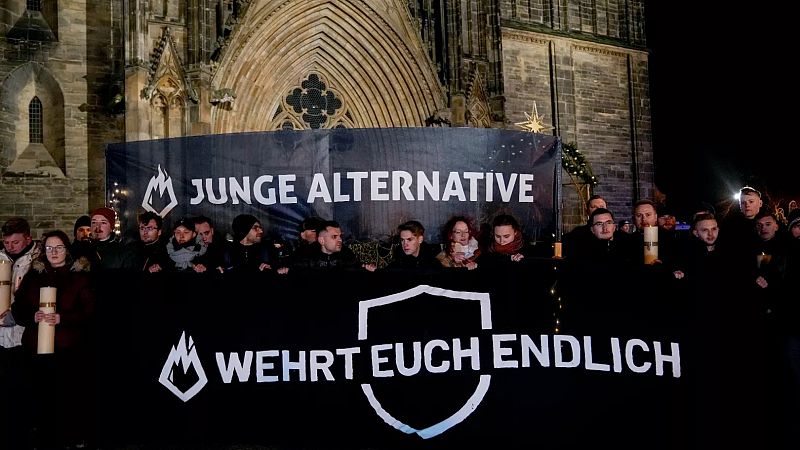Magdeburg Christmas market attack causes spike in anti-migrant sentiment

A deadly car-ramming attack on Magdeburg’s Christmas market in December has triggered a sharp rise in anti-migrant sentiment in the city, leaving many members of the migrant community fearful for their safety, a national advocacy group has said.
A Saudi-born doctor, who had lived in Germany since 2006, drove his vehicle into the crowded holiday market, killing five women and a nine-year-old boy and injuring 200 others.
Authorities say the suspect, who is in custody, does not fit the usual profile of extremist attackers.
However, the incident has intensified hard-right rhetoric, sparking protests and a significant increase in reported racial abuse against migrants in the city.
Just one day after the attack, a large far-right demonstration took place in Magdeburg. Since then, reports of verbal and physical violence against people with migrant backgrounds have surged, according to the German-Syrian Cultural Association.
“The migrant community and advice centres report that attacks have increased by more than 70% in the city,” said Saeeid Saeeid, a Syrian migrant who arrived in Germany seven years ago and is part of the association.
"Racism already exists here and everywhere. But it has increased enormously since the attack,” he added.
Ketevan Asatiani-Hermann, newly elected chair of the Advisory Council for Integration and Migration in Magdeburg, said that victims of racist violence often feel abandoned by politicians and law enforcement.
“The hatred has always been there, but people just didn’t dare to say it so clearly before,” said Asatiani-Hermann, who moved to Magdeburg from Georgia in 2011.
She alleged that police officers sometimes target or search the victims of racist incidents before going after the perpetrators.
Many migrants, she said, also fear that reporting such incidents could jeopardise their residency status.
Mayor Simone Borris, in a statement, called for unity. “Cohesion and community are fundamental values of a city that are inviolable,” she said, adding that the city would strengthen cooperation with the Advisory Council for Integration and Migration.
Magdeburg, located in the former communist east, is a stronghold of the far-right Alternative for Germany (AfD) party, which is currently polling at around 20% nationally ahead of the upcoming election.
While the AfD is unlikely to gain power immediately, its rising influence has reshaped Germany’s political debate on migration.
The party’s surge in popularity has prompted mainstream politicians to take a tougher stance on immigration.
Asatiani-Hermann warned that the election results, particularly any further gains by the AfD, could have lasting consequences for Magdeburg’s political climate and daily life.
Saeeid urged local officials to address the migrant community’s concerns directly.
“We will not allow Magdeburg to become a playing field for racism and hatred,” he said.
Today

